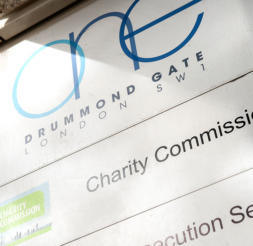The Charity Commission has published new draft guidance for trustees of charities offering grants to non-charitable organisations.
The guidance builds on the regulator’s existing advice for charities working with other charities and urges them to restrict grant-giving to projects that further the charity's own purpose.
A statement by the regulator today said charities were urged to “only make grants for activities that in principle it could carry out itself”.
“Trustees must also comply with the powers and restrictions in their charity’s governing document and ensure that the recipient of the grant understands and agrees the aim of the grant, how this is expected to further your charity’s purposes, and what the grant can and can’t be used for,” the statement said.
Director of policy and communications at the Charity Commission, Sarah Atkinson, said it was important for trustees to recognise risks that come with making grants to non-charitable organisations.
“Trustees have clear responsibilities when deciding where their funding goes. This is why due diligence and risk assessment are so important,” she said.
“The number of charities that might want to consider grants to non-charitable organisations is likely to be a small proportion of the sector. But for those that do, this guidance will be essential reading. We want this guidance to set out clear boundaries for trustees to ensure that charity funds are applied properly and to help them if things go wrong or circumstances change during the life of a grant.”
The new guidance sets out a series of steps for trustees to consider including:
- To make sure they understand their own charity’s purposes
- To have appropriate governance systems and procedures in place for making decisions about grants
- To take reasonable steps to assess risks and carry out an appropriate process of assurance (or due diligence) on the organisation
- To ensure that the organisation receiving the grant understands their charity’s purposes and their boundaries
- To be aware that they remain responsible for grant decisions even if decisions are delegated, and understand where extra care may be needed
- To set appropriate grant conditions and ensure that the organisation understands and accepts them
- To put appropriate monitoring arrangements in place
- To know what to do if things go wrong
Last year the Joseph Rowntree Charitable Trust and the Roddick Foundation became subjects of compliance cases by the regulator for providing the advocacy group Cage with a total of £425,000 between them. But the Charity Commisson was taken to the High Court by Cage and accused of acting beyond its powers.









